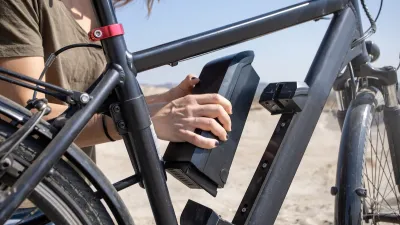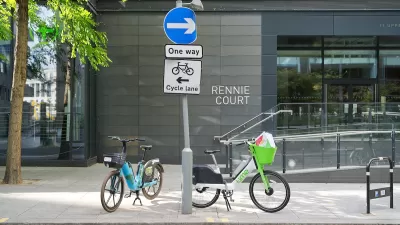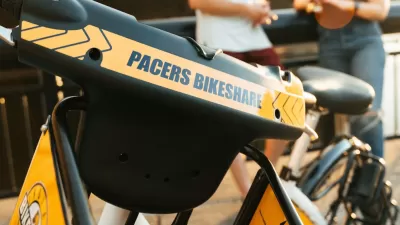A proposal to require insurance for low-speed electric bikes could hamper the adoption of non-auto modes, advocates argue.

“On Thursday, the New Jersey Senate's Transportation Committee is holding a hearing about bill S2292, which would require riders of low-speed electric bikes and scooters to register their vehicles with the state and carry liability insurance to cover themselves and anyone else who might be harmed in the event of a crash.”
According to Streetsblog USA’s Kea Wilson, the insurance doesn’t even exist yet—and the law could have a ‘chilling effect’ on all micromobility modes, including human-powered ones like bicycles. “Serious crashes involving those modes are so relatively rare, though — the National Transportation Safety Board recorded just 119 e-bike-involved fatalities between 2017 and 2021 vs. the 192,709 caused by drivers — so advocates say the legislation would do little more than increase already-steep barriers to human-scaled mobility posed by traffic violence, while undermining the climate, equity, and safety goals that low-speed modes can help communities reach.”
In Europe, e-bikes aren’t held to the same requirements as higher-speed vehicles because they are “not propelled exclusively by mechanical power.” Advocates argue New Jersey and other states should update the definition of ‘pedestrian’ to include low-speed mobility options rather than require insurance similar to motor vehicles.
Matt Moore, general policy counsel for People for Bikes, says the bill could set a dangerous precedent: “because pedal bikes are actually ridden faster on average than e-bikes because they attract more fit and athletic riders, New Jersey might someday argue that riders who don't use pedal-assist should carry insurance, too — and other communities could all too easily follow suit.”
FULL STORY: Why Every E-Biker Should Be Worried About NJ’s Proposed Micromobility Insurance Law

Planetizen Federal Action Tracker
A weekly monitor of how Trump’s orders and actions are impacting planners and planning in America.

San Francisco's School District Spent $105M To Build Affordable Housing for Teachers — And That's Just the Beginning
SFUSD joins a growing list of school districts using their land holdings to address housing affordability challenges faced by their own employees.

The Tiny, Adorable $7,000 Car Turning Japan Onto EVs
The single seat Mibot charges from a regular plug as quickly as an iPad, and is about half the price of an average EV.

Seattle's Plan for Adopting Driverless Cars
Equity, safety, accessibility and affordability are front of mind as the city prepares for robotaxis and other autonomous vehicles.

As Trump Phases Out FEMA, Is It Time to Flee the Floodplains?
With less federal funding available for disaster relief efforts, the need to relocate at-risk communities is more urgent than ever.

With Protected Lanes, 460% More People Commute by Bike
For those needing more ammo, more data proving what we already knew is here.
Urban Design for Planners 1: Software Tools
This six-course series explores essential urban design concepts using open source software and equips planners with the tools they need to participate fully in the urban design process.
Planning for Universal Design
Learn the tools for implementing Universal Design in planning regulations.
Smith Gee Studio
City of Charlotte
City of Camden Redevelopment Agency
City of Astoria
Transportation Research & Education Center (TREC) at Portland State University
US High Speed Rail Association
City of Camden Redevelopment Agency
Municipality of Princeton (NJ)





























